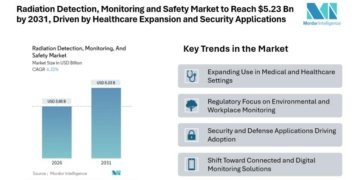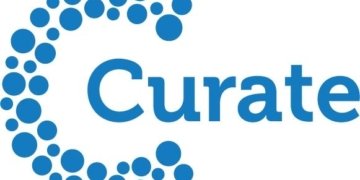According to a recent report from Allied Market Research titled “Passwordless Authentication Market,” the market was valued at $12.80 billion in 2021 and is projected to reach $40.2 billion by 2031, experiencing a compound annual growth rate (CAGR) of 12.2% from 2022 to 2031.
As organizations worldwide become increasingly aware of the security risks associated with traditional password systems-which can be easily stolen or shared-alternative security solutions are gaining traction. Several passwordless authentication methods have emerged, including hardware tokens, which are physical devices that verify user identity, and biometric technologies that use unique physical features, such as thumbprints, for authentication.
Download Sample Report (Get Full Insights in PDF – 208 Pages) at: https://www.alliedmarketresearch.com/request-sample/A47286
Passwordless authentication operates as a form of multi-factor authentication, requiring users to validate their identity without relying on passwords. This method leverages unique biological traits to confirm authenticity, significantly easing the burden on users who often struggle to remember multiple passwords for various accounts. By eliminating passwords, users no longer need to create or recall unique passwords for each account, nor do they have to enter them repeatedly during logins. As a result, passwordless authentication has become increasingly prevalent on devices equipped with biometric sensors and facial recognition technologies, marking its readiness for widespread adoption across desktops and servers.
The market research indicates that the “others” segment emerged as the largest revenue contributor, generating $4.5 billion in 2021, with an impressive CAGR of 10%. Meanwhile, the challenge-response authentication mechanism (CRAM) segment is projected to reach $9.5 billion by 2031, showing substantial growth during the forecast period.
The COVID-19 pandemic has positively influenced the growth of the passwordless authentication market, as the demand for technologies like artificial intelligence (AI) and the Internet of Things (IoT) in electronic devices-such as smartphones and tablets-has surged. Moreover, the rise in data theft incidents has heightened the popularity of passwordless solutions. To mitigate data theft risks, existing devices can now be secured using passwordless methods like fingerprint sensors and facial recognition. Consequently, the adoption of passwordless authentication methods increased during the pandemic.
For Report Customization: https://www.alliedmarketresearch.com/request-for-customization/A47286
Regionally, North America accounted for a significant share of the global passwordless authentication market, driven by the growing demand for enhanced end-user services. The U.S. and Canada are currently the leading markets in this region. Factors contributing to the growth of the passwordless authentication market in North America include rapid advancements in consumer electronics, increased penetration of IoT and AI technologies, and rising awareness of passwordless solutions in the banking sector. Furthermore, rapid urbanization and the escalating demand for passwordless authentication in mobile applications, due to growing data security concerns, are key drivers for market growth in regions such as Asia-Pacific, North America, Europe, and LAMEA.
By Type: In 2021, the “others” segment was the highest revenue contributor, demonstrating a robust CAGR of 10%. The challenge-response authentication mechanism (CARM) segment is expected to reach $9 billion by 2031 during the forecast period.
By Authentication Type: The multi-factor authentication segment is anticipated to dominate the passwordless authentication industry throughout the forecast period, while single-factor authentication segments are expected to witness the fastest-growing CAGRs during the same timeframe.
Regional Insights: North America leads in passwordless authentication market growth, but significant growth rates are anticipated in Asia-Pacific and Europe during the forecast period.
Buy Now & Get Up to 50% off on This Report: https://www.alliedmarketresearch.com/passwordless-authentication-market/purchase-options
The study provides a comprehensive analysis of the passwordless authentication market size, along with current trends and future forecasts to identify potential investment opportunities. The overall analysis aims to highlight profitable trends to strengthen market presence.
The report also includes a detailed examination of key drivers, restraints, and opportunities, along with an impact analysis. A quantitative forecast of the passwordless authentication market from 2021 to 2031 is provided to benchmark financial performance. Additionally, Porter’s Five Forces analysis illustrates the bargaining power of buyers and suppliers within the passwordless authentication industry.
Key players profiled in the report include Google LLC, Microsoft Corporation, IBM Corporation, NEC Corporation, Thales Group, Okta, Fujitsu Limited, Cognitec Systems GmbH, HID Global Corporation, and Secret Double Octopus (SDO). Market participants have adopted various strategies, including product launches, collaborations, partnerships, joint ventures, and acquisitions, to enhance their presence in the passwordless authentication market. For example, in January 2022, HID Global partnered with Citrix to offer a passwordless work solution, providing enhanced authentication experiences for Citrix Workspace users without compromising security. Such collaborations have further propelled the growth of the passwordless authentication market during the pandemic.
Access the full summary at: https://www.alliedmarketresearch.com/passwordless-authentication-market-A47286
Key Industry Insights & Findings:
1. Significant investments in developed countries like the U.S., Canada, Germany, France, and the U.K. to implement passwordless authentication technology are essential for market growth.
2. Fingerprint and facial recognition technologies offer numerous advantages, including enhanced security, accountability, convenience, and non-transferability, which are vital for market expansion.
3. The rise of e-commerce and online banking, coupled with regulations from authorities such as central banks, requires large organizations to adopt robust customer authentication mechanisms.
4. Multi-factor authentication helps protect clients against phishing attacks, fraudulent purchases, and secures transactions.
Contact:
David Correa
5933 NE Win Sivers Drive
#205, Portland, OR 97220
United States
Toll-Free: 1-800-792-5285
UK: +44-845-528-1300
Hong Kong: +852-301-84916
India (Pune): +91-20-66346060
Fax: +1-855-550-5975
help@alliedmarketresearch.com
Web: https://www.alliedmarketresearch.com
Follow Us on: LinkedIn Twitter
About Us:
Allied Market Research (AMR) is a full-service market research and business-consulting wing of Allied Analytics LLP, based in Portland, Oregon. AMR provides global enterprises as well as medium and small businesses with unmatched quality of “Market Research Reports” and “Business Intelligence Solutions.” AMR has a targeted view to provide business insights and consulting to assist its clients in making strategic business decisions and achieving sustainable growth in their respective market domains.
AMR launched its user-based online library of reports and company profiles, Avenue. An e-access library is accessible from any device, anywhere, and at any time for entrepreneurs, stakeholders, researchers, and students at universities. With reports on more than 60,000 niche markets with data comprising 600,000 pages along with company profiles on more than 12,000 firms, Avenue offers access to the entire repository of information through subscriptions. A hassle-free solution to clients’ requirements is complemented with analyst support and customization requests.
This release was published on openPR.


















